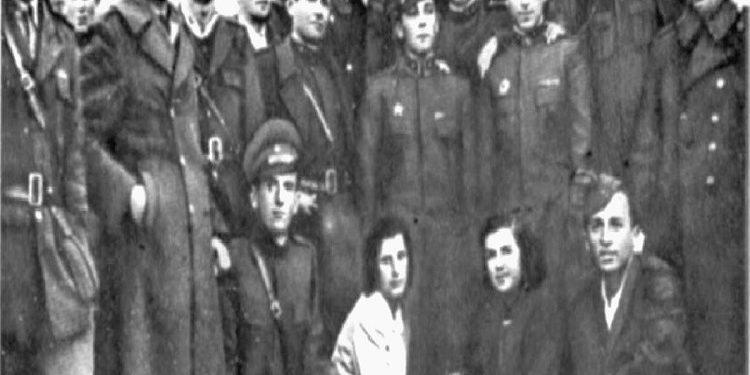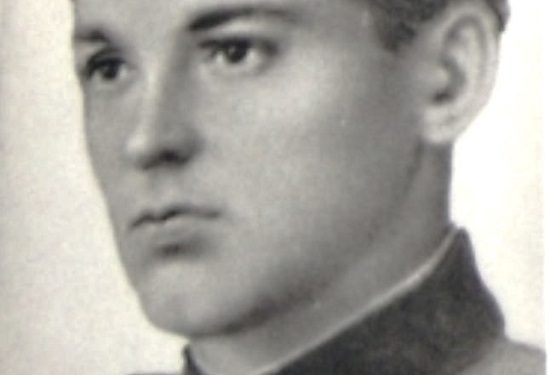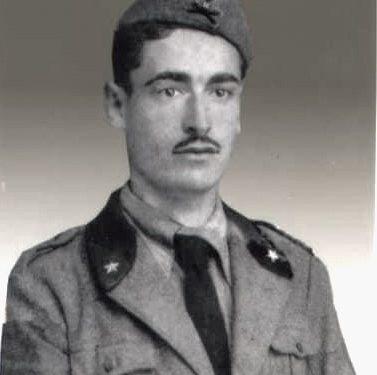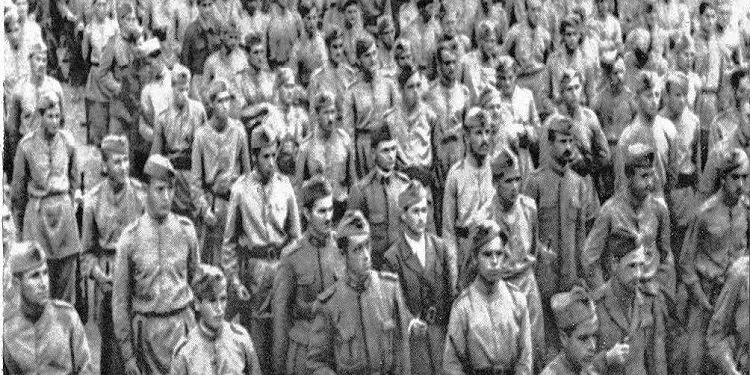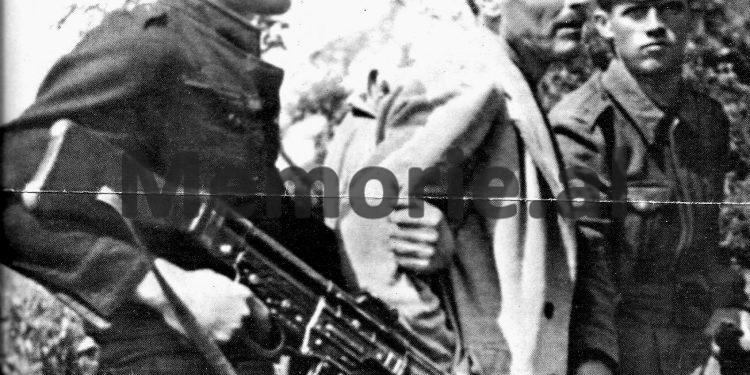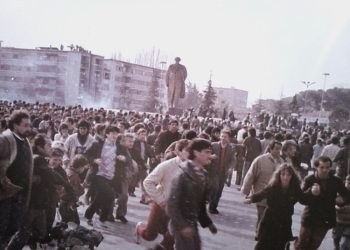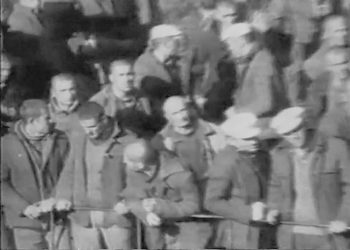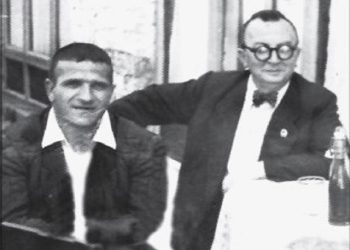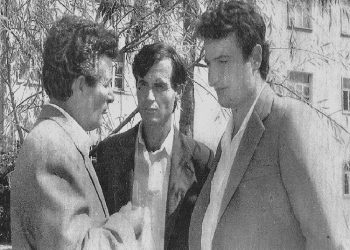The fourth part
Memorie.al publishes a study conducted by AIDSSH (Authority for the Information of Former State Security Documents), entitled; “DISAPPEARED – INSURANCE IN OWN WORDS”, 19 INSURANCE BRANCHES, 3299 LIFE, 1 HISTORY’, in which the ‘History of State Insurance’, which belongs to a time period from 1943 to 1991, is used. where 19 State Security branches are included, from the districts: Durrës, Kolonje, Burrel, Krujë, Lushnje, Dibër, Gramsh, Pogradec, Korçë, Tepelën, Elbasan, Lezhë, Saranda, Gjirokastër, Vlorë, Shkodër, Tropojë, Skrapar, Librazhd and Tirana.
Entry
INSURANCE IN OWN WORDS
“Those who think that communist regimes are the work of criminals only, overlook a fundamental truth: criminal regimes were not formed by criminals, but by convinced enthusiasts…”!
Milan Kundera, “The unbearable lightness of being”
Continues from last issue
Burrel
The life of the State Security in the district of Mati starts with a party organization that is small in number and not extended to all the villages. The historian notes a weak operational agency work, with only one section chief and only three detectives who “disguised their activity at the front”. All the basis of their work in the beginning was just a list with the names and surnames of the fugitives. But in a short time, their situation changed. For each designated enemy group, they had basic data, from the number of members to the bases where they received help and the areas where they hid. In four years, from 1944 to 1948, they managed to annihilate completely and partially the opposing groups operating in the district of Mati.
In four years, the following were liquidated: the group of Xhemal Vata from Macukulli with 6 people, the group of Sali Llani from Derjani, with 11 people, the group of Sul Kurti with 4 people, the group of Haziz Suchi with 3 people, that of Shahin Doçi with 4 people , Bilal Kola’s group, which killed 8 people, Ndrec Lufi’s group, which killed 7 people, and Marka Dod Gjini’s group, with 3 killed. “Of the 15 armed gangs with 80 thugs operating in the district, the following escaped: Bilal Kola’s gang, 11 people, Marka Dod Gjini’s gang, 2 people and one individual, Gjon Mhilli”, notes the historian of Burrel.
I waited 4 months for a family
In December 1946, the People’s Protection Section received information that Tahir Mena’s group had been seen in the forests of Vinjoll village in Mat. A platoon of 40 men was put on alert, dividing into 4 ambushes. On December 3, the ambush commanded by Sabri Protopapa from Korça, dictated smoke in the Sema Forest and it was discovered that there was Tahir Mena’s group, with 11 people, who had dictated the Sigurimi and was in defense.
When fire was opened, two were killed by the Security forces, while by the opponents of the government, Selman Mena (Tahir Mena’s father), Hasan Mena, Man Mena were killed and Lam Mena was seriously wounded, who died after several days in the hospital. “The capture of Lam Mena alive created the opportunity to obtain extended data on the gang, while the other members of the gang took advantage of the position of the broken place of the forest and bypassed the siege, going to the Blloc of Selita”. The pursuit of the rest of the Mena family and their friends continued.
On April 21, 1947, Sigurimi received other information and pursued Tahir Mena, inflicting a wound on his leg, which caused them to follow him for 12 consecutive days. Another piece of information placed the injured Mena on the Stone Plateau. “The forces entered the forest in search, at 5 o’clock on 1947, the gang was surrounded, during the attempt, the chief bandit Tahir Mena was killed, Bajram Mena was seriously injured as well as Qazim Mena, he was injured and died in the hospital. Isa Mena and Mejit Mena were also injured, and Ali Mena and Ramiz Mena and slightly injured Isa and Mejit Mena left the line, where they were captured after 10 days”, it is noted in the history.
Three ropes at the Neck of the Church
As the regime consolidated power by extending its influence to the deepest areas, through information from collaborators that included hostile groups, hosts, shelters, and those who knew but did not report about the regime’s opponents, fear often gripped residents. to show unreasonable piety, as Sigurimi presents. Often, the people were divided into supporters of the regime, who helped the Security agencies, and anti-communists, which also caused occasional victims.
The murder of the communist Shkurte Cara, in July 1949 by political opponents, caused the revenge to be swift. 3 days after her murder, “on July 10, 1949, the Security authorities arrested 17 of the most suspicious people, who had information that they were harboring gangs and knew about the murder of Skurta and Zef Bruçi, including two agents of the gang, who were communists.
From the rapid investigation conducted within 3 days, the accomplices of the bandits were discovered and 13 people were put on trial, 3 were sentenced to death and executed by hanging on a rope. Their execution took place in the place where the murder of Shkurte Cara was carried out in the Neck of the Church, 9 others were sentenced to various prison terms of up to 25 years”.
While Sigurimi admits that the investigation lasted only 3 days, 3 people were taken to the ropes, not that they had killed him, but that, according to Sigurimi, they had harbored opponents of the government and could have knowledge.
The 7 killed of the Lufi family
The history of the State Security does not provide information on why the Lufi family from Mirdita had fled when the communists came to power. The historian is content with defining the area where it circulated and counting those killed in its midst.
Ndrec Lufi’s group appears to have been on the run in the area of Selita in Mirdita, which at that time was under the administration of Mati district. The first attack of the government against her was in November 1947, when the Security also killed Llesh Lufi. Two months later Nikollë Lufi is killed, while in the last attempt, Ndrec Lufi is also injured. On May 2, 1947, the gang was surrounded in the gorge of Skuraje Kurbnesh, where 2 of the main members of the group were killed: Tanush Lufi and Pep Lufi. With 4 killed and Ndreca wounded, with a number of forces in pursuit, their survival becomes difficult, while in Mirdi, there were many killed among the opponents of the communists. “From this gang since 1948, 7 people were killed and out of 10 people, 3 people remained who, together with Ndrec Lufi, went to Yugoslavia”.
“I don’t give up my uncle”
In 1949, Sigurimi liquidates the group of Tafe Vata, that of Ram Dervish, Tosk’s group and kills Geg Zef Hysen, Lama Dacin. Among the many groups that fell into the hands of the regime and were then put on the rope or bullet, the group of Bilal Kola, who had 11 people with him, brothers, nephews and friends, who were able to escape the persecutions, remained a challenge for them. There are several reasons why she escaped.
“Bilal Kola’s gang was able to escape, because in the gang there were members with education and they knew how to maneuver in any situation that presented themselves, they had unity, because they were from the same family, they knew the terrain, they were people of sacrifices…! Another tactic was the one that compromised people by playing tricks, godfathers and byrazerlek”, Sigurimi lists almost admiringly, but also admitting the point where he was limping. “They used our agency against us, which played a double role, informing us where the gang was and informing Bilal to leave…! The agency set up against him did not give us Bilal, because he was related by blood and in the end it was understood that he had betrayed the Security authorities”, the historian notes.
The “Spinach Root” collaborator had sacrificed others in order not to hand over Bilal Kola. In January 1948, he had handed over Bilal’s friends, the group of Hazis Suchi, who was surrounded in the forest and killed on January 3, 1948. “After many attempts, the agent declared that he had Bilal’s uncle and that he would not give him up, and was called traitor and as such was expelled from the agency”.
Killing the captain
The strengthening of power was done by eliminating the strongest opponents. The history of Sigurimi accepts it indirectly, as it lists opponents in large numbers who had to be eliminated. On June 10, 1946, the Security section was informed by the people that Marka Gjon Marku, one of the strongest opponents of the regime, had been arrested in Prosek town of Mirdita and from there he would move to Buzhiq.
With this information, the People’s Defense Forces organized several secret ambushes. The ambush that was placed on the Prosek-Malaj road destroyed Mark Gjon Mark and his courier, Ndue Pjetër Gjoni. The information about him in the history is summarized briefly, although the murder was considered a success for the Security bodies, because he had an influence on all opposing groups in the district of Mirdita and neighboring districts.
“He was considered by them as the leader of the resistance in Albania. On the part of the enemy, his murder was called a great loss, and in the letters he sent to Sal Llani, the capobanda of Librazhd, Rustem Dani, said that: ‘As the workers of the Royal Party inform us, Mr. Mark Gjon Marku, has been killed in the district of Tirana’s own second, with the date 13.6.1946, Mark’s murder must be announced in the newspaper, because we are very upset, so please, upon receiving this letter, give us an answer”.
Kruje
Traps, murders without trial, murders at home or in the forest, checks in “caves and pits”, guest houses, exhibitions of dead bodies in castles, hostile groups and saboteurs, blacken the history of the Security of Kruja, where, if we only take for granted numbers, there was also revenge. The betrayal of relatives also plays a role, ambushing opponents of the regime.
The strong hand of the Security in this district would require up to 200 people to destroy Frano Mir’s group. The head of the Security Section sent two urgent letters during the day, on March 1, 1948, emphasizing that their siege will continue at night in the Shëmri village forest. The clash between Frano Miri’s group and the Sigurimi would continue for a long time, if we notice the murders that the Sigurimi blames on Miri, who was a separate challenge for them, since he was also in contact with the opposing groups of the regime, in Mirdita and Kurbin . He had been a partisan who came out of the ranks when he was asked to fight against his uncle, Prek Cali. The persecution of Frano Miri’s family began openly in 1946, when among the 10 killed in the Gurëzi massacre, 4 bore his last name.
Infidelity for Nowruz
March 19, 1946. With the cooperation of the State Security, Bajram Kau invites to his house 7 Croatians who were wanted. It is the Nowruz holiday and as soon as the friends enter the house, the accomplice notifies his fellow Security officers. The siege was tripled, with a large number of forces participating in the operation, both from the People’s Defense and from the country’s command. They were accused as a gang and the operation would be carried out inside the city, at the head of Kruja. According to the history of Sigurimi, “the goal was to capture them alive if possible, to annihilate them”.
There are discrepancies, however, regarding the duration of the operation. At the beginning it is said that “The siege took place at night, without fuss. Two hours before dawn, the siege ended. “Krisi rifle, because of the calls he made to you, they didn’t listen to surrender”. It is further noted, “the fight with them lasted the whole day, until after lunch. Seeing this resistance of theirs, the forces received the order to burn their house, and so it was done. In this attempt, the criminals Ibrahim Kupi, Cen Taga and a son of Ibrahim Kupi were killed”. Ibrahimi and his son Jakupi had gone to the mountains immediately after the war.
Unpublished murder
If there are still so many missing, whose fate was never known, although one day they escaped or set out to escape, some information appears from time to time, almost randomly, in the documents of the Security. Wanting to arrest an accomplice he had betrayed, Sigurimi concocts a scheme, which he admits with great care. The operative of the area requests a meeting to discuss a very important problem. The conversation between the operative and the accomplice to be secretly arrested reveals another secret, a secret with a murder. He was asked for help in capturing a former fugitive and he agreed, although this was only a provocation, to cover his absence in Kruja.
“Pashk Zef Hoti has come from Yugoslavia and I don’t know him”, said the operative, it is written in the history of Kruja, adding in brackets: (in fact, Pashk Zef Hoti was killed as a saboteur as early as 1954, but his murder was not was published)”
Revenge for the prosecutor
The State Security claims that in the month of November 1946, in Kruja, “criminals”, the name they use for opponents of the regime, committed crimes every week. But the revenge of Sigurimi was not missing either. 4 days after the murder of the prosecutor of Burrel, among the Mamurras of Burizana, “the Defense Forces, captured and executed at the scene, the bases of these criminals, who were Lazër Gjoka from Bushneshi, Ymer Leka from Burizana, Vesel Zogu from Luzi and Gjon Mark Kola, from Burizana”.
Security emphasizes that the execution of “criminals” was of great importance, especially among his associates, where feelings of insecurity had appeared. Those who were killed in the ranks of the opponents were also killed in the forest, in unspecified places. “On March 19, 1947, the criminal Pjetër Mark Doçi, from Bazi i Burrel, was killed in the forest of Zheja, he escaped twice in an effort with our forces”, one of the collaborators notes in the file.
Hiding the murder in your sleep
Agent “Prirja” recounts in 1978, the manner of killing Frano Miri, one of the strongest opponents of the regime in the area. In his group, Sigurimi managed to introduce two collaborators who had orders to kill him awake or asleep.
“…we took the road to the mountain above Gjorm. From 8 o’clock in the morning, Frano and Zefi told us, we will sleep a little, but you stay awake to watch over us. This was a good opportunity to kill. We agreed to stand guard. We had the task that we had to kill him asleep or awake that day. In addition, on the other hand, comrade Nuri had organized a siege with the Defense Forces, but they had orders not to shoot, even if they heard rifles.
So, L. M and I, when we saw that they had fallen asleep, we attacked them and left them dead. When we saw that they were dead, we fled to the foot of the mountain. So the pursuit forces checked the place and found Frano Miri and Zef Përvuka killed”, remembers “Prirja”. In order to hide the collaborators of the Sigurimi who betrayed Mir, the Sigurimi writes that their corpses (Mir of Përvuka) were covered with raincoats, isolated and secretly transported near Mamurras and in the late hours of that night a a big “attempt” near the house of Zef Pëvuka, with many forces, with rifles and bombs, where it was staged as if Miri and Pëvuka were “killed” there. “This was the legend and this was the combination”, adds Sigurimi about the event of 1948.
Special task
State security required the annihilation of some enemies of power, but without burning his collaborators, who could be used for other traps. The operational worker gives the task to the I.S. collaborator to kill two wanted by him, Pjetër Nikolla together with the saboteur Ndue Lala, but he wanted the murder to be carried out “not taking responsibility in public, but as if his murder was done by the forces of pursuit”. Sula promised, through a coded letter, that he would ambush three saboteurs and kill one himself, through this text: “I will give you 300 lek on such and such a date – i.e. there are three saboteurs and I will come to a meeting on ….- 2000 ALL.
I’ll find them in three days, I’ll give you – that is, he met two, where he kills one himself and after two or three days he comes to the meeting”. Since Sigurimi failed to kill the enemies, the associate sent him another letter in which he himself built a scenario of how he would behave after the murder of Nikola: “It seems to me that you were worried that I was betraying. No, I never do that, because no one pressures me to join you, but the mistake is your own, you know very well…! I thought, in case Pjetri (Nikolla) will meet with us without Mark (his nephew), we decided to kill him directly and I take it upon myself “that he wanted to betray me”. So, you open your eyes, because you don’t know how it works”. Memorie.al




